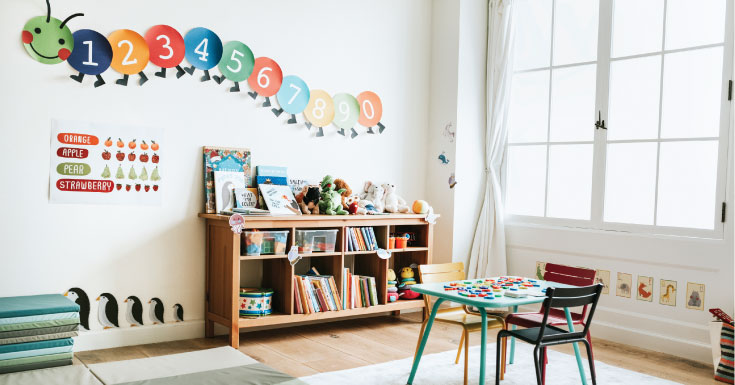Preschools provide an environment for your child to learn through play, socialise and adopt academic skills, giving them a headstart in education before they begin primary school. Experts note that quality preschool programs are important to ensure early learners fully benefit from them. With this in mind, here are 10 things to consider when selecting the right preschool for your child.
1. The Right Philosophy
Every school espouses a different teaching philosophy and it’s important to pick the right school that closely aligns with your values. Popular choices in Malaysia include Montessori, Waldorf, and Reggio Emilia. It’s vital to take a tour of the preschool and observe how children interact with teachers.
2. Your Child’s Needs
Knowing what your child needs to improve on and what environment they can thrive in are two criteria that should help decide which school is the ideal choice. Your child will be spending a considerable time in preschool so it’s important to factor in your child’s needs and whether the preschool can meet them.
3. The Ideal Curriculum
When perusing through a school’s curriculum, they should be able to deliver on certain fundamentals. These include having your child cultivate a persisting interest in learning, improving the child’s cognitive abilities (as well as social, literary, and physical skills), and building on your child’s strengths whilst helping them work on their weaknesses. These main components will serve your child effectively and give them a chance to discover new passions and interests throughout their preschool experience.
4. Qualified Teachers
The quality of the teachers at the preschool is another important factor for consideration. It is best to find a school that hires teachers who have post-high school training. These can include a 4-year college degree in early childhood education or child development. Studies have shown that higher teacher education and qualification predict better overall care.
Teachers should also be positive and caring as early childhood learning revolves around building trust. It is a fact that children learn better when such trust is developed as positive teachers are nurturing and don’t engage in negative interactions such as yelling or scolding the child.
5. Teacher and Learner Interactions
Observing how teachers interact with the children is another deciding condition. Teachers should have positive and frequent interactions with the kids and encourage them to communicate. Additionally, good teachers should pose thought-provoking questions to kids and praise the child’s positive actions. Above all, the teacher should inspire children to learn and use a variety of ways such as songs, games, and crafts to describe events and allow the kids to be contributors within the classroom.
6. Using Constructive Discipline
Asking a school for a clear explanation of their discipline policy also helps tremendously. At preschool, young children are learning how to develop their social skills, understanding of social rules, and language to express frustration. A good school practices positive discipline and does not by punishing young pupils. Warning signs include schools that physically punish children or publicly shame them, for example by issuing a punitive time-out.
7. Free Play
Preschools should always encourage free playing as it is one of the best ways for preschoolers to learn. Physical activities and playing promote social abilities and behaviours which they will need as they age. You should select a preschool that includes plenty of playtime in their schedule whilst also having a system in place to facilitate social learning and guide conflict resolution. As much as preschoolers should have fun, you also can’t have them figure things out on their own, so having effective teachers oversee play is equally vital.
8. Language Options
Most preschools in Malaysia should be capable of helping kids to master the 3 main languages — English, Bahasa Malaysia, and Mandarin. This not only gives your child a leg up but allows you the flexibility of enrolling your child in a local, Chinese, or international school in the future. Children at this age can learn anything quickly and effectively and thus, it is the perfect time to learn languages.
9. Safety and Security
Safety is a priority and this is no different at preschools. You’d want a safe and protective environment for your child to have peace of mind. When touring or enquiring about a school’s day-to-day security, look out for multi-layered security, visitor policy, thorough staff background checks, and contingencies in place to deal with unforeseen emergencies. Also, check if they have health policies in place to prevent the spread of contagious diseases.
10. Distance and Transport
Selecting a location can be a major factor when deciding. As much as the teaching quality and facilities are important, you’d want a school that is a relatively easy commute. This is especially the case if you and your partner have busy working schedules. You may also want to inquire whether your desired preschool offers transportation services to ease the burden.
Deciding on the right preschool can be overwhelming with all these aspects to consider. Take note of what’s important to you and start from there. On that note, your child’s formative years are highly important so take the time to visit and research the preschools. Don’t be afraid to talk to other parents and the authorities of these preschools as you will only stand to gain knowledge on what school will be the best for your child.


